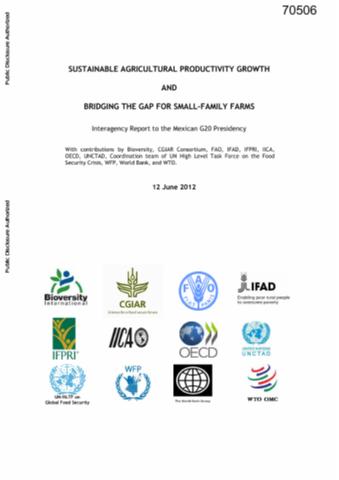The Cost of Land Degradation in Ethiopia : A Review of Past Studies
This paper reviews past studies on the
costs of land degradation in Ethiopia, with a view to
drawing implications for policies, programs, and future
research on sustainable land management (SLM). Given the
wide range of methods and assumptions used in the studies,
their findings concerning annual costs of land degradation
relative to agricultural gross domestic product (AGDP) are
of remarkably similar magnitude. The minimum estimated


